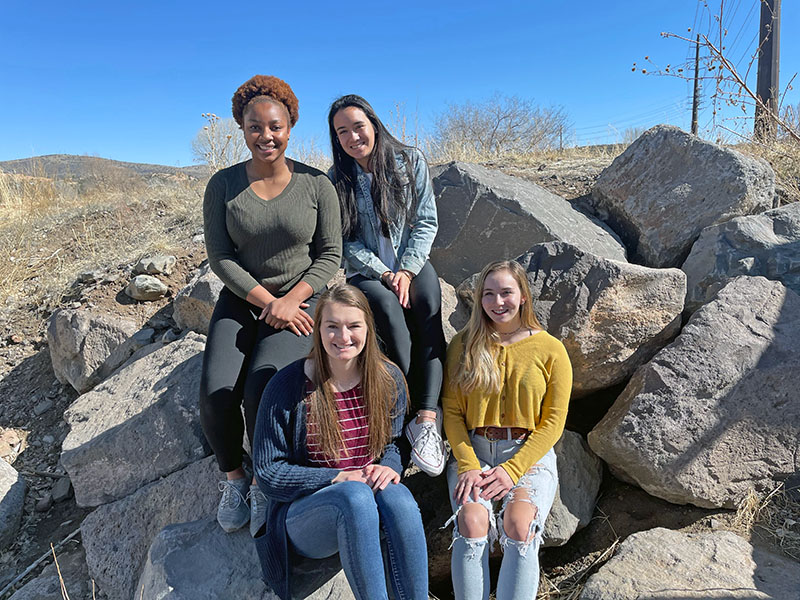Ever since high school, Terra Gordon has been involved in humanitarian issues. At Embry-Riddle, she is using that passion to lead a project that merges her interest in aerospace engineering with her passion for human rights.

It’s called the Reconnaissance and Documentation (RAD) Satellite project. Gordon is leading a team of fellow engineering students to develop a small satellite that collects data remotely to bring awareness of genocide and other crimes against humanity around the world. She hopes to increase transparency in areas that may be remote, dangerous and difficult for people to access.
“My idea is to make a small satellite to eliminate the human aspect, because that is where the danger lies — when people get into the conflict zone,” she says.
The RAD Satellite project is also partnering with scientists from NASA’s Jet Propulsion Laboratory to aid in the development of the remote sensing payload.
Gordon and the other three team members — Cayli Keane Farias, Sharik Joseph and Julia Kjenstad — have a shared passion for engineering that makes a difference.
“Project RAD is an opportunity to use science and technology for good.”
Farias, who is studying mechanical engineering and aims to work in renewable energy, says she wanted to be involved in the project because it is an innovative, technological approach to solving a humanitarian issue.
“Project RAD is an opportunity to use science and technology for good, helping some of the hardest to reach places,” Farias says. “It was the perfect opportunity to broaden my knowledge while also contributing to a project dedicated to making positive change.”
The RAD Satellite project will become the team’s senior capstone project, but they hope it will continue beyond their graduation, with the goal to build a prototype spacecraft and eventually launch a full-scale model into low Earth orbit.
“We also have another goal to apply to the NASA’s CubeSat Launch Initiative to have them test and launch it for us,” Gordon says.